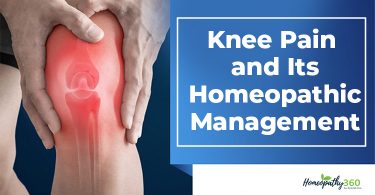Abstract: Down the ages, drugs have been eaten, drunk, and smoked as a means of attaining a state of narcosis with colorful and fantastic visions. Addiction means a recurring compulsion by an individual to engage in some specific activity despite harmful consequences to the individual health, mental state or social life; be it heroin or alcohol, chemicals drugs, chocolate or work, sex or church. Drug addiction is considered a pathological state. The disorder of addiction involves the progression of acute drug use to the development of drug-seeking behavior, the vulnerability to relapse, and decreased or slowed ability to respond to naturally rewarding stimuli.
An addiction state is characterized by three stages: preoccupation/anticipation, binge/intoxication, withdrawal/negative affect. Drug addiction differs from drug dependence and drug tolerance. The difference between substance abuse and addiction is very slight. Substance abuse means using an illegal substance or using a legal substance in the wrong way. Addiction begins as abuse, or using a substance like marijuana or cocaine. You can abuse a drug (or alcohol) without having an addiction. Addiction means a person has no control over whether he or she uses a drug or drinks. Someone who’s addicted to cocaine has grown so used to the drug that he or she has to have it. Addiction can be physical,
psychological, or both.
The most intricate step in the treatment of an addiction is acknowledgement of the habit. People with addictions often cannot abstain on their own. The realization of the underlying problem and enhancing the immune system with the help of homeopathic remedies can give an enduring cure, physically, mentally and emotionally. Hence, homeopathy can play a fundamental role in treating addiction. Constitutional homeopathic treatment will act skillfully on the person’s inherent nature, molding and harmonizing the person’s self-energy to control the life situations. Constitutional homeopathic treatment along with proper counselling and psychotherapy will help address any related medical, psychological, social and cognitive problems. Homeopathy can facilitate with detoxification, behavioural negativities, denial and deterioration from addictions. In addition, it will help build motivation to resist Addictions, replace addictive activities with positive and rewarding behaviours, and safely manage the symptoms of withdrawal associated with quitting addictions. Furthermore, the constitutional approach will also facilitate interpersonal relationships and the ability to function in the home and society.
There are different types of Addictions:
- Substance abuse: This is overindulgence and detrimental use of alcohol, nicotine, illicit drugs like cocaine, heroin, marijuana, etc., prescription drugs such as steroids, painkillers, sedatives, etc.
that is injurious to physical and mental health and also have unfavorable social consequences such as letdown at work, family, or school commitments, interpersonal disputes or legal problems. - Computer addiction: This can show the way to internet addiction where one can get occupied in games, chats, forums, web surfing, pornography or other online distractions.
- Gambling addiction: This is a disorder of impulse control and can be associated with casinos,lotteries, stock market, etc, ensuing in major liabilities, family disruption, loss of job, unlawfulactivity or even suicide.
- Work addiction: This is a condition when a person perseveres to be relentlessly busy taking onmore than can practically be done. They begin to isolate themselves from personal relationships.They have difficulty relaxing and internally stay at work even when at home. They start noticing symptoms like insomnia, high blood pressure, chronic headaches, stomach ulcers, weight changes, etc.
- Diet addiction: This can be either obsessive overeating, food addiction or under eating, Anorexia.Overeating can be a serious problem as it can lead to obesity and various other health issues.
With anorexia, the body can go into starvation mode, and nutritional deficiencies can affect the body in many ways. - Exercise addiction: Compulsive exercise can be a symptom of eating disorder, psychological illness or an illness by itself. This can prevent normal interactions at home and work.
- Sex addiction: This is a relationship disorder depicted by uncontrollable sexual thoughts and acts.This conduct can lead to immoral interpretation of love with wrong people and at wrong places.
- Shopping addiction: This is a condition when shopping spirals are out of control sparked off by emotions or stress. This behaviour can impinge on your relationships, your family, your finances,
etc.
Main causes of Addictions are: - Hereditary
- Upbringing and surrounding
- Physical or mental abuse
- Trauma from unpleasant childhood incidences
- Emotional disorders
- Low frustration tolerance
- Loneliness
Biochemical imbalances
Drug addiction is a complex condition (more recently called Drug Dependency) that has been defined as a disorder that manifests in the obsessive thinking about and use of drugs. It is a condition that may be progressive and fatal if left untreated. Drugs work by affecting the chemicals in the brain and inducing an artificial state of euphoria or a ‘high’.But as the body gets used to the effects of the drugs, it takes more and more to achieve the same affect, thus starting a never-ending quest to attain this false happiness – with frightening consequences. As the disease progresses, drug users will allow relationships, jobs, studies, careers and children to fall by the wayside as drugs become a central need in their life. People addicted to drugs may also find themselves in denial. For addicts to continue such a destructive, self harming and damaging way of life there has to be a very strong level of denial existing to keep them from fully seeing the truth and reality of the illness. Therefore, denial exists as a survival mechanism to protect the disease. With substance abuse treatment, addiction can be treated and a better, healthier lifestyle adopted. The difference between substance abuse and addiction is very slight. Substance abuse means using an illegal substance or using a legal substance in the wrong way. Addiction begins as abuse, or using a substance like marijuana or cocaine. You can abuse a drug (or alcohol) without having an addiction. For example, just because a person smoked weed a few times doesn’t mean that he or she has an addiction, but it does mean that such individual is abusing a drug — and that could lead to an addiction. Addiction means a person has no control over whether he or she uses a drug or drinks. Someone who’s addicted to cocaine has grown so used to the drug that he or she has to have it.
Addiction can be physical, psychological, or both.
Physical Addiction
Being physically addicted means a person’s body actually becomes dependent on a particular substance (even smoking is physically addictive). It also means building tolerance to that substance, so that a person needs a larger dose than ever before to get the same effects. Someone who is physically addicted and stops using a substance like drugs, alcohol, or cigarettes may experience withdrawal symptoms. Common symptoms of withdrawal are diarrhea, shaking, and generally feeling awful.
Psychological Addiction
Psychological addiction happens when the cravings for a drug are psychological or emotional. People who are psychologically addicted feel overcome by the desire to have a drug. They may lie or steal to get it. A
person crosses the line between abuse and addiction when he or she is no longer trying the drug to have fun or get high, but has come to depend on it. His or her whole life centers around the need for the drug. An addicted person — whether it’s a physical or psychological addiction or both — no longer feels like there is a choice in taking a substance.
Signs of Addiction
The most obvious sign of an addiction is the need to have a particular drug or substance. However, many other signs can suggest a possible addiction, such as changes in mood or weight loss or gain. (These also are signs of other conditions, too, though, such as depression or eating disorders.)
Signs that you or someone you know may have a drug or alcohol addiction include:
Psychological signals
- use of drugs or alcohol as a way to forget problems or to relax
- withdrawal or keeping secrets from family and friends
- loss of interest in activities that used to be important
- problems with schoolwork, such as slipping grades or absences
- changes in friendships, such as hanging out only with friends who use drugs
- spending a lot of time figuring out how to get drugs
- stealing or selling belongings to be able to afford drugs
- failed attempts to stop taking drugs or drinking
- anxiety, anger, or depression
- mood swings
Physical signals
- changes in sleeping habits
- feeling shaky or sick when trying to stop
- needing to take more of the substance to get the same effect
- changes in eating habits, including weight loss or gain
Some of the most commonly abused drugs are amphetamines, barbiturates, benzodiazephines, cocaine, methaqualone, opium alkaloids, etc. Today some of the drugs used by the allopathic system of medicine for therapeutic use, e.g., steroids, anti-inflammatory steroid drugs and anti-epileptic drugs are also cursed with severe withdrawal symptoms and they can cause dependency, addiction and resistance. The mind is our most important tool. With our mind, we solve the problems we face in life. Drugs do several things that harm ones ability to think or to be fully aware of the present surroundings. These effects continue long after the effects of the drug appear to have worn off. Addictive drugs activate the brains reward systems. The promise of reward is very intense, causing the individual to crave the drug and to focus his/her activities on getting and taking the drug. The ability of addictive drugs to strongly activate brain reward mechanisms and their ability to chemically alter the normal functioning of these systems can produce an addiction. Drugs also reduce a person’s level of consciousness, impairing the ability to think or be fully aware pf present surroundings. The drug taker is not moving in the same series of events as others. This can be slight, wherein the person is seen to make occasional mistakes, or it can be as serious as total insanity – where the events apparent to him are completely different from those apparent to anyone else. And it can be all grades in between. It isn’t that the drug user doesn’t know what’s going on. It is that he perceives something else going on instead of the actual series of events that are happening around him.
The Addiction Cycle:
The life cycle of addiction begins with a problem, discomfort or some form of
emotional or physical pain a person is experiencing. They find this very difficult to deal with.
We start off with an individual who, like most people in our society, is basically good. This person encounters a problem or discomfort that they do not know how to resolve or cannot confront. This could include problems such as difficulty “fitting in” as a child or teenager, anxiety due to peer pressure or work expectations, identity problems or divorce as an adult. It can also include physical discomfort, such as injury or chronic pain.
The person experiencing the discomfort has a real problem. He feels his present situation is unendurable, yet sees no good solution to the problem. Everyone has experienced this in their life to a greater or lesser degree. The difference between an addict and the non-addict is that the addict chooses drugs or alcohol as a solution to the unwanted problem or discomfort.
This person tries drugs or alcohol. The drugs APPEAR to solve the problem. He feels better. Because he now SEEMS better able to deal with life, the drugs become valuable to him. The person looks on drugs or alcohol as a cure for unwanted feelings. The painkilling effects of drugs or alcohol become a solution to his discomfort. Inadvertently the drug or alcohol now becomes valuable because it helped him feel better.This release is the main reason a person uses drugs or drinks a second or third time. It is just a matter of time before he becomes fully addicted and loses the ability to control his drug use. Drug addiction, then, results from excessive or continued use of habit-forming drugs in an attempt to resolve the underlying
symptoms of discomfort or unhappiness.
Analogous to an adolescent child in his first love affair, the use of drugs or alcohol becomes obsessive. The addicted person is trapped. Whatever problem he was initially trying to solve by using drugs or alcohol fades from memory. At this point, all he can think about is getting and using drugs. He loses the ability to control his usage and ignores the horrible consequences of his actions.
The addict will now attempt to withhold the fact of his drug use from friends and family members. He will begin to suffer the effects of his own dishonesty and guilt. He may become withdrawn and difficult to reason with. He may behave strangely. The more he uses drugs and alcohol, the guiltier he will feel, and the more depressed he will become. He will sacrifice his personal integrity, his relationships with friends and family, his job, his savings, and anything else he may have in an attempt to get more drugs. The drugs are now the most important things in his life. His relationships and job performance will go dramatically downhill.
In addition to the mental stress created by his unethical behaviour, the addict’s body has also adapted to the presence of the drugs. He will experience an overwhelming obsession with getting and using his drugs, and will do anything to avoid the pain of withdrawing from them. This is when the newly-created addict begins to experience drug cravings. He now seeks drugs both for the reward of the “pleasure” they give him, and also to avoid the mental and physical horrors of withdrawal. Ironically, the addict’s ability to get “high” from the alcohol or drug gradually decreases as his body adapts to the presence of foreign chemicals. He must take more and more, not just to get an effect but often just to function at all.
At this point, the addict is stuck in a vicious descending spiral. The drugs he abuses have changed him both physically and mentally. He has crossed an invisible and intangible line. He is now a drug addict or alcoholic.
Biochemical Aspects of Addiction
Drugs are broken down in the liver into residues (chemical compounds which are closely related to the original substance). Most of these residues are eliminated rapidly from the bloodstream, but some can become trapped in the fatty tissues of the body. Although there are various types of tissues that are high in fat content, the one thing in common – and the problem that needs to be addressed – is that these drug residues remain for years. Tissues in our bodies that are high in fats are turned over very slowly.
When they are turned over, the stored drug residues are released into the bloodstream and reactivate the same brain centres just as if the person actually took the drug. The former addict now experiences a drug re-stimulation (or “flashback”) and drug cravings. This is common in the months after an addict quits and can continue to occur for years, even decades.
When the addict initially tries to quit, cells in the brain that have become used to large amounts of these residues are now forced to deal with much decreased amounts. Even as the withdrawal symptoms subside, the brain “demands” that the addict give it more of the drug. This is called drug craving. Craving is an extremely powerful urge and can cause a person to create all kinds of “reasons” they should begin using drugs or drinking again. He is now trapped in an endless cycle of trying to quit, craving, relapse
and fear of withdrawal. Eventually, the brain cells will again become used to having lowered drug residues. But, because deposits of drug or alcohol residues release back into the bloodstream from fatty tissues for years, cravings and relapse remain a cause of concern. The presence of residues, even in microscopic amounts, can make the brain react as if the addict had actually taken the drug again and can set up cravings and cause relapse even after years of sobriety.
Addicts cannot stop using drugs for two reasons:
1. Mental and physical cravings caused by drug residues which remain in the body.
2. The Biochemical Personality caused by drugs and the lifestyle the person adopts to get them.
Left unhandled, these manifestations will haunt a person for years even if they have sobered up. Left untreated, these unresolved symptoms, whether physical or mental in origin, create an underlying low level type of stress which cannot be completely ignored by the addict. The addict can “just say no” a thousand times, but it takes him saying “yes” one time to start the cycle of addiction again.
Homeopathic Approach to Addiction
The most intricate step in the treatment of an addiction is acknowledgement of the habit. People with addictions often cannot abstain on their own. The realization of the underlying problem and enhancing the immune system with the help of homeopathic remedies can give an enduring cure, physically, mentally and emotionally. Hence, homeopathy can play a fundamental role in treating addiction. Constitutional homeopathic treatment will act skillfully on your inherent nature, molding and harmonizing
your self-energy to control the life situations. Constitutional homeopathic treatment will help address any related medical, psychological, social and cognitive problems. The detailed homeopathic history taking will also contribute in counselling, which is a significant element of effective addiction treatment. Homeopathy can facilitate with detoxification, behavioural negativities, denial and deterioration from addictions. In addition, it will help build motivation to resist Addictions, replace addictive activities with positive and rewarding behaviours, and safely manage the symptoms of withdrawal associated with quitting addictions. Furthermore, the constitutional approach will also facilitate interpersonal relationships and the ability to function in the home and society. Although homeopathic medicines are not a cure on their own for substance abuse, they can be very beneficial for those who are trying to deal with their abuse and end their addictive behaviour. Proper
homeopathic remedies along with psychotherapy counselling can help with the mental aspect of substance abuse, as well as some of the symptoms that accompany substance abuse.
The homeopathic treatment then uses different supplements and vitamins to ease the body into its new drug-free state. Maintaining balance within the body is very important in all alternative medicine and becomes especially true in addiction homeopathic treatment. Addicts’ bodies are destroyed by their addictions. They tend to lack in many essential nutrients, vitamins,
and minerals. Homeopathic treatment tries to naturally replace these nutrients while healing the mental scars. Some people are plagued by terrible thoughts which drive them to use. The use of some minerals,
like some natural forms of lithium, can, after a short time, remove them from a person who had them. It isn’t as if memories are erased, but the thoughts don’t dominate and control the mind because of the alternative medicine homeopathic treatment. In general all the treatment studies into homeopathic treatment of addiction have come up positive. These types of treatments are effective because they take care of the mental aspect like non alternative medicine as well as using natural substances as homeopathic treatment for the body. They replace what the addiction has removed from the body with the homeopathic treatment. The most important thing is the lack of new drugs which end up replacing the old ones. The alternative medicine use of natural substances is really what aids the body more than traditional non alternative medicine treatment.
In emergencies and acute phases various homeopathic remedies can be used on acute symptom totality. After stopping drinking it is important to eat a healthy, varied diet and to make up deficiencies of Vitamins A, B, C, D, K, folic acid, bioflavinoids, iron, manganese, potassium, and Cysteine (an amino acid found in dairy products, whole grains, nuts and seeds). A high-dose multivitamin and mineral supplement would be the most convenient way of doing this in the first month after stopping drinking. Regular intake
of all the nutrients mentioned above is advised even for moderate social drinkers. Evening primrose oil would also be beneficial.
CASE
Colin, 23 years of age, is a college student who is bound to be involved in the company of boys who used to take different drugs for fun sake, rather they are addicted to one or another drug. Initially Colin resisted himself to get bound to this addiction but in peer pressure of his friend circle, he stared taking Alprax 1mg daily. He initially started taking 10 tablets a day, which gradually increased up to 40-50 tablets a day. Now three years are passed since he is practising this schedule. Colin also complained of headache since last 18 months. Headache is bursting in nature and usually repeats itself after regular interval.
Colin had lost his father in early childhood and he had this grief settled in his mind since then. Thirst of the patient is unquenchable type; he use to drink lot of water but still feels thirsty. Patient has a peculiar desire for salty things. Other physical generalities are non-specific.
Mental Generals – Patient is reserve and introvert in nature, has a very small group of friends and do not open up easily. On taking these drugs, he feels he is not doing the right thing but even on knowing, he is not able to abstain himself from his deeds. If somebody tries to talk to him on his habit, he becomes irritated.
On above history, the constitutional emerges out to be Natrum Muriaticum.
8th Oct 2003
First consultation:Nat. Mur. LM1 to take daily and changing dilution every week for 4 weeks.
Sac lac tds x 15 days.
Patient was also given a counselling session about de-addiction and withdrawl symptoms.
15th Oct 2003
Patient had develped severe withdrawl symptoms as he completely abstained himself from taking the drug. The symptoms include severe headache and vomiting and even he became unconscious for 2 days
for which he had been admitted to the Hospital for two weeks. After that he recovered from these symptoms but he developed profound sleeplessness.
16th November 2003
Follow up and casetaking was done.
Nat. Mur. LM2 to take daily and changing dilution every week for 4 weeks.
Kali Phos 12X tds x 15 days.
Patient was again given a counselling session about cessation of drug intake.
26th Dec 2003
Follow up: Patient improved quite a lot. He immensely reduced the intake of Alprax.
Nat. Mur. LM2 assumption continues
14th January 2003
Follow up: Patient improved and was not taking any Alprax and also there were no withdrawl symptoms and headache is totally relieved.
Nat. Mur. LM2 assumption continues
26th March 2004
Follow up : Patient improved with no complaints.
No remedy repetition
10th June 2004
Follow up: No complaints.
The patient has been follow up once a year since and he is still attending psychotherapy and counselling sections at least 2-3 times per year.
Author: Claudia De Rosa (Bsc, Phd), Classical Homeopath and Psychologist
©december2010, Claudia De Rosa – Classical Homeopath





